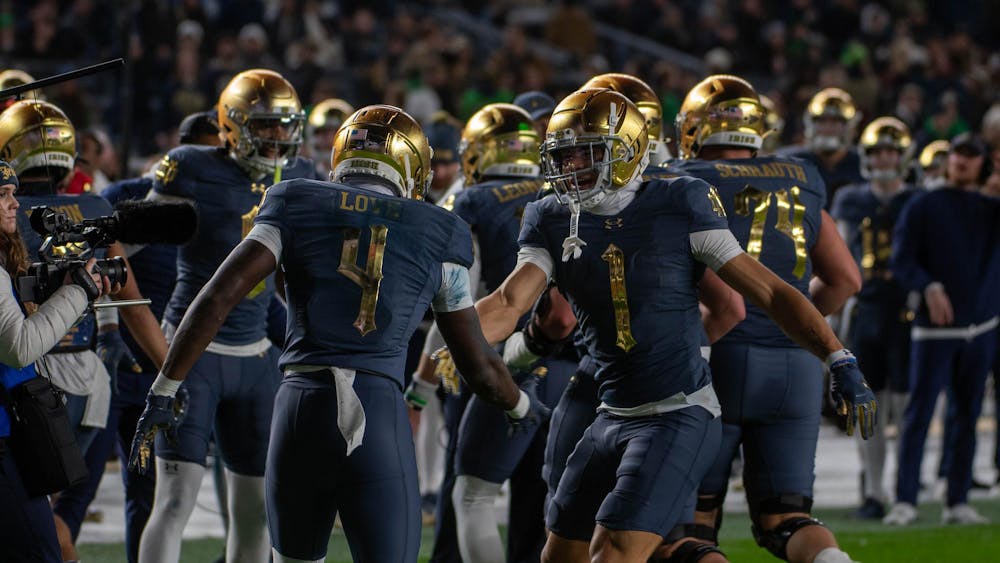
Liya Blitzer | The Observ
Liya Blitzer | The Observer
The answer: this Canadian philosophy student and aspiring broadcaster began hosting television shows in his native Ontario before shifting to and from short-lived NBC game shows for years. He replaced his friend Art Fleming as the host of “Jeopardy!” in 1984, a position he ending up holding for 36 years and over 8,200 episodes until his death from pancreatic cancer on Sunday at age 80.
The question (which, as always on “Jeopardy!,” is so much more than just that): Who is Alex Trebek?
Trebek was a nerd icon who nevertheless mercilessly bullied the nerds daring to mispronounce a single word on his show, an ageless fixture whose mustache was the only way to track the passage of time from season to season. He was at once inimitable and easily parodied. His most famous pop cultural depictions, whether it was Cliff Clavin’s immortal Final Jeopardy response on “Cheers” or Will Ferrell’s increasingly exasperated “Saturday Night Live”impression, worked precisely because Trebek was so familiar. In a TV landscape that has become increasingly fractured, the last piece of monoculture wasn’t “Game of Thrones” or “The Bachelor” or “The Simpsons;” it was Trebek and “Jeopardy!,” appearing on televisions across the country almost every night for decades.
Gifted with a steady purr of a voice that was by turns cutting and cuddly (all depending on the caliber of the contestants), Trebek became as much of the “Jeopardy!” experience as the yellow-on-blue color scheme or Merv Griffin’s earworm of a theme song. He wasn’t just part of the set, however; equally comfortable with all-timers like Ken Jennings or anonymous one-off contestants, Trebek always kept a level head that connected him to the viewers at home. As the seasons wore on, Trebek’s celebrity grew to a point where certain categories seemed designed solely to gain traction on Twitter. The joke was never on Trebek, though — not even when he deadpanned his way through Desiigner’s “Panda.” Instead, the host grew along with the times, even if the format of his show remained unchanged. When Trebek rapped “Started From The Bottom” with his usual stentorian gravitas, he wasn’t making fun of it, and the show wasn’t making fun of him; he was simply (and correctly) placing Drake in the same lineage as the long-dead authors and forgotten historical pacts that have always formed the backbone of “Jeopardy!”
Perhaps the trait most necessary to Trebek’s success was his quiet competence; there was simply never any doubt that Trebek knew exactly what he was talking about. He could quote Balzac with just as much ease as he did the Beastie Boys. Even when faced with an entire category of the dreaded “triple stumpers” — as he was on an infamous occasion when three contestants took a break from naming literary terms to showcase their utterly stunning lack of knowledge about football — Trebek could wring deliciously entertaining television out of his contestants’ stunned silence. The sight of Trebek futilely miming a fair-catch signal, trying to get some kind of recognition from the three athletically-agnostic players in front of him, had enough dry pettiness to power a “Real Housewives” reunion.
There’s a certain kind of dedicated “Jeopardy!” viewer: the one who knows exactly what time the show comes on in whatever city they’re visiting, the one who can remember particularly challenging clues off the top of their heads, the one who has favorite contestants in the same way that normal people follow athletes. (Shout-out to Colby Burnett, the Chicago teacher whose first-round win and attendant facial expressions over neckbeard-twirling villain Austin Rogers in the 2019 All-Star Tournament had me reacting like I was watching the Super Bowl.) Trebek existed for that kind of fan. He was the patron saint of know-it-alls everywhere, turning trivia into high art. The host took a barroom game that’s usually played for a gift card or free wings and transformed it into a way for the lucky few to win thousands of dollars and for the much more numerous masses to win living room bragging rights.
After a brief break to remake the show’s production guidelines in a post-COVID world, Trebek and the rest of the “Jeopardy!” team returned to their usual five-episode-a-day taping schedule in September. While it’s not clear just how many episodes Trebek was able to film before he passed away, the show announced that his last-ever episode will air on Christmas Day. After all of the uncertainty and pain that this year has brought, his last episode will be a balm; rest assured that, no matter who’s playing or what questions are asked, Trebek will have the same voice, the same humor, the same dignity that he always had. Families are going to take a break from their celebrations to watch Trebek welcome us with his usual grace into a seemingly backwards world where answers lead to questions and people actually use the word “potpourri.” Trebek may be gone, but it won’t be the last time he brings people together to shout answers at the screen. There won’t be a last time; for as long as people are trying to prove just how much they know, “Jeopardy!” will be around. And where “Jeopardy!” goes, Alex Trebek leads the way.
Alex, we’ll take “Thank You” for $2,000. Rest in peace.









